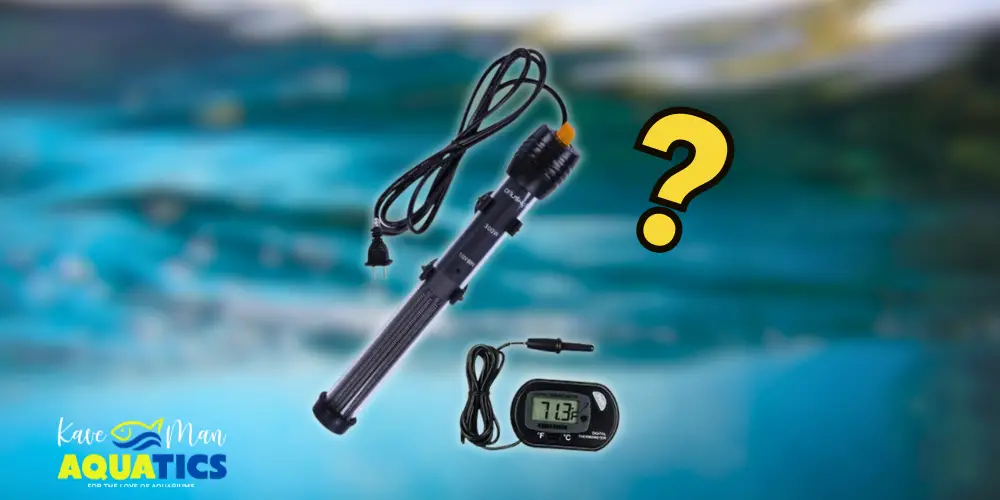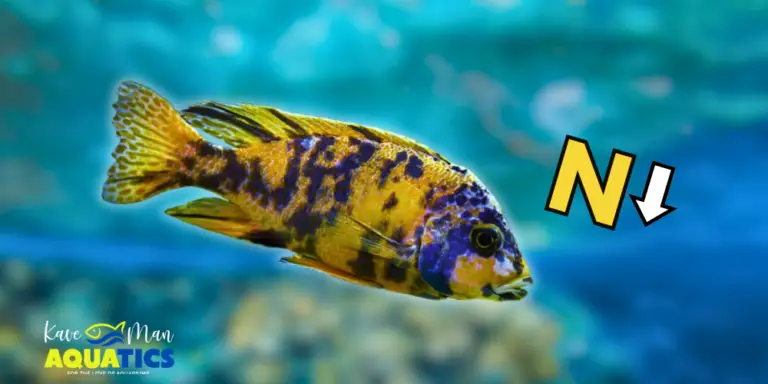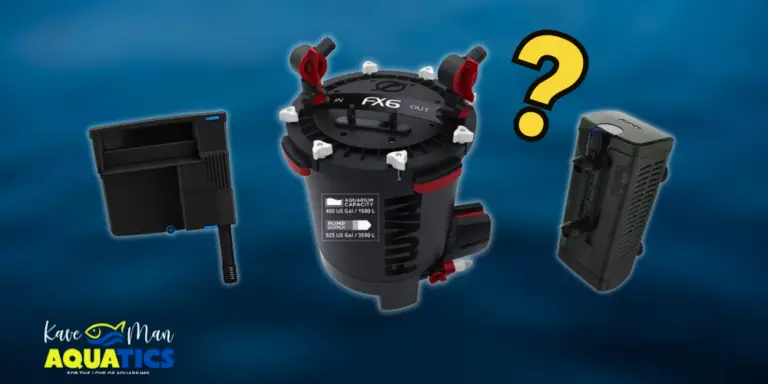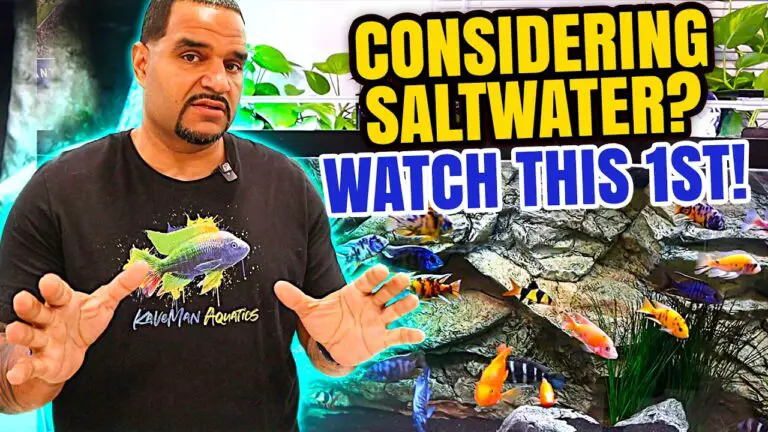Aquarium Heater Guide: Choosing the Right Heater for Your Fish Tank
When setting up your tank, an aquarium heater might not be the first thing on your mind — after all, there are so many other exciting aspects to consider! But choosing the right heater for your specific tank and fish is crucial for creating a thriving environment.
With so many options out there, it can feel overwhelming trying to figure out which one will keep your aquatic buddies cozy and happy. But don’t worry — we’ve got you covered!
Why a Good Heater Matters
Aquarium heaters are a must for stable and comfortable tank environments. Let’s go back to the basics.
Fish are cold-blooded, meaning their body temperature depends on the water around them. Without consistent heat, your fish may become stressed, get sick, or even die. Now, you can’t just pop in a heater and expect everything to be hunky-dory.
Different fish species have different temperature needs, which can make getting the right water temperature a little tricky. But, a reliable aquarium heater will help maintain this range — with the help of a trusty thermometer.
Your aquarium heater will help prevent sudden temperature drops or spikes that could harm your fish. It’s one of the easiest ways to ensure your fish stay healthy, happy, and thriving in their tank!
4 Types of Aquarium Heaters
Before we can dive into the specifics, know there are also different types of aquarium heaters — each suited for specific tank setups and needs.
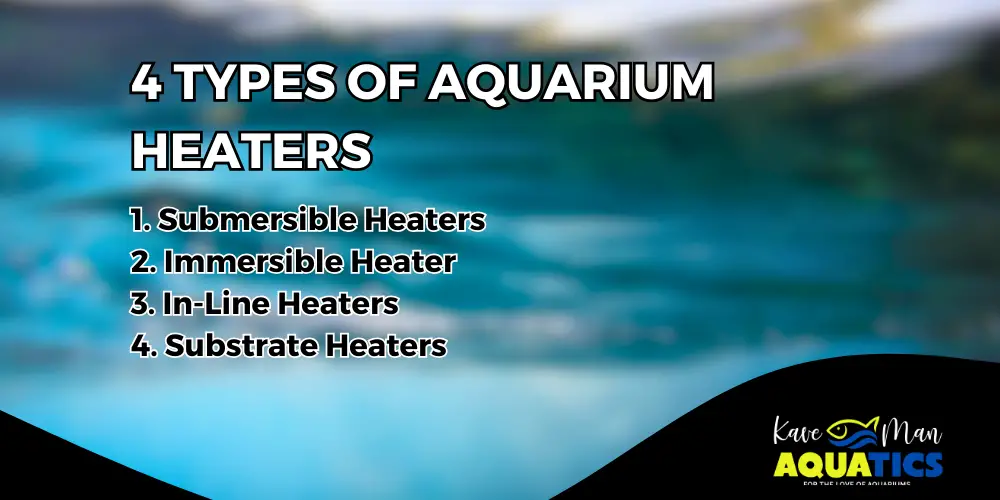
1. Submersible Heaters
These are the most common type of aquarium heaters, and are designed to go all in — literally! Stick them horizontally or vertically — near the filter is best — and they’ll keep the whole tank at the perfect temp. Submersible heaters are reliable and work for most tank sizes — that’s why KaveMan Aquatics use submersible heaters in all our tanks!
2. Immersible Heater
Also known as hang-on heaters, these are partly submerged with the heating element in the water and the controls outside.So, immersible heaters only dip their toes in the water! They’re budget-friendly and work well for small tanks, but they don’t offer the same heating as submersible models.
Still, for a simple setup, they get the job done!
3. In-Line Heaters
Want a clean, clutter-free look? In-line heaters live outside your tank, hooked up to your external filter. They heat water as it flows back in, so there’s no bulky equipment inside. In-line heaters are perfect for larger tanks and for anyone who loves a sleek, polished aquarium vibe.
4. Substrate Heaters
If you’ve got a planted tank, substrate heaters are your secret weapon. These go under your gravel or sand, and gently warms the roots to promote plant growth. Substrate heaters aren’t your main heat source but work wonders for creating a healthy environment for your plants.
How to Choose the Right Size Heater
Choosing the right aquarium heater is simpler than it seems! Here’s the deal — the general rule is 5 watts of power per gallon of water. So, for a 20-gallon tank, you’ll need a 100-watt heater. Easy, right?
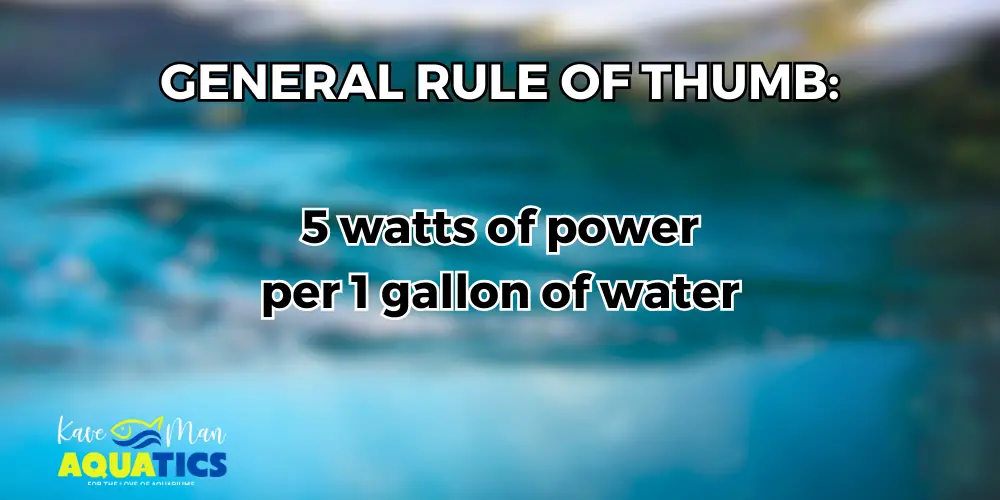
Here’s a quick table for reference:
| Aquarium Size (Gallons) | Heater Size (Watts) |
| 5 | 25 |
| 10 | 50 |
| 20 | 100 |
| 30 | 150 |
| 40 | 200 |
| 50 | 250 |
| 75 | 300 |
| 100 | 2 x 200 |
| 125 | 2 x 250 |
But, it doesn’t stop there! You’ll also want to think about your room temperature. If your room is cooler than the ideal water temperature, you may need a heater with a bit more power to keep the water warm enough.
For larger tanks, using two smaller heaters instead of one big one can help spread the heat more evenly and provide a backup if one fails. Just place them at opposite ends of the tank for the best coverage.
Bottom line — match the watts to your tank size, consider the room’s temperature, and always make sure your fish stay nice and cozy!
Where to Put Your Heater
Location is everything! For the best results, pop that heater near the filter or somewhere with good water flow, like next to the filter outlet. This helps spread the heat evenly, so your fish aren’t swimming in a hot tub on one side and an ice bath on the other.
Got a bigger tank? Double up! Using two heaters — one on each end — keeps the temp consistent all around.
And a quick tip — if you’re using a submersible heater, make sure it’s fully underwater (duh!). Also, always unplug it during water changes — your heater and fish will thank you!
Aquarium Heater FAQs
Got any questions? We have the answers!
1. What size heater do I need for my aquarium?
A general rule is 5 watts per gallon of water. Know that factors like room temperature and tank size can influence this.
2. Where should I place the heater in my fish tank?
Place it near good water flow areas, like next to the filter outlet. Aim for that even heat distribution.
3. What’s the difference between submersible and immersible heaters?
Submersible heaters can be fully submerged in water, while immersible heaters hang on the tank and are partially submerged.
4. How do I know if my aquarium heater is working correctly?
Use a separate aquarium thermometer to regularly check if the tank is maintaining the correct temperature.
5. Can I leave my heater on all the time?
Yes. Most aquarium heaters have thermostats that turn them on and off automatically to maintain the set temperature.
6. What temperature should my fish tank be?
It depends on the species. Tropical fish usually prefer higher temperatures, while cold-water fish, like goldfish, need lower temperatures.
7. Do I need more than one heater for a large aquarium?
Typically yes. Using two smaller heaters can give more even heating — plus, it can act as a backup in case one fails.
8. How often should I replace my aquarium heater?
Most heaters last 3-5 years, but regular checks are important to catch any malfunction early.
9. Can I use a heater in a small or nano tank?
Yes. Just make sure to choose a heater that’s appropriate for smaller volumes, usually around 25 watts or less.
10. What should I do if my heater breaks?
Turn it off, remove it safely, and replace it immediately. Always keep an extra heater on hand for emergencies.
Take the Guesswork Out of Fishkeeping With Aquabuildr!
Now that you’re a heater expert, your fish are well on their way to living their best, cozy life! But why stop there? For the full aquarium experience, it’s time to dive into Aquabuildr — the ultimate app for aquarium lovers like you.
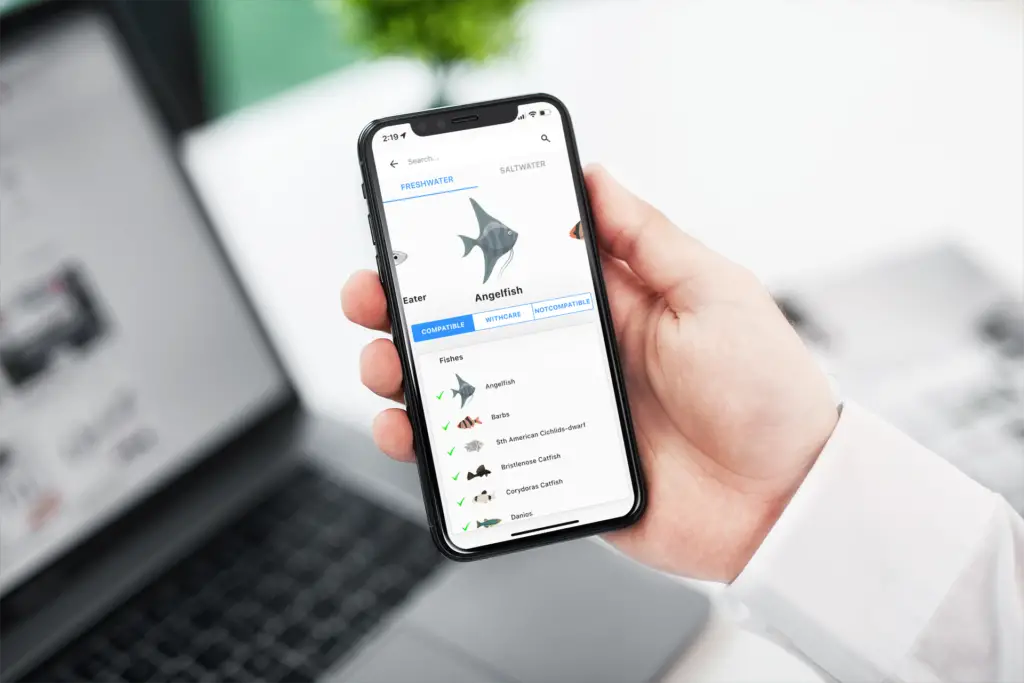
With Aquabuildr, you can easily design the perfect tank, get smart recommendations for compatible fish, and even receive alerts to keep your water conditions in check. Our intelligent algorithm makes building and maintaining your aquarium a breeze.
So, why not take your fishkeeping skills to the next level? Get started for FREE on the App Store or Google Play store, and start building your dream aquarium!
-
When To Add Dechlorinator During Water Change? (Safely)
We already know the importance of adding dechlorinator to our…
-
Internal Parasites In Fish Treatment – A Last Resort
So you’ve tried it all. You’ve tried the General Cure,…
-
African Cichlid Algae Eaters – Best For Your Tank
Having the right kind of African Cichlid algae eaters could…

